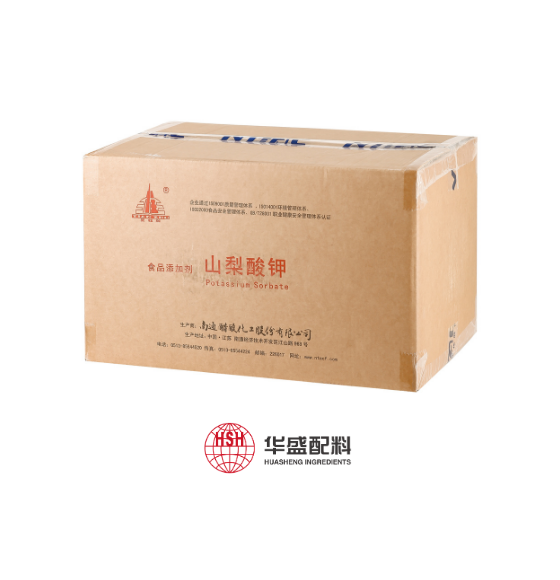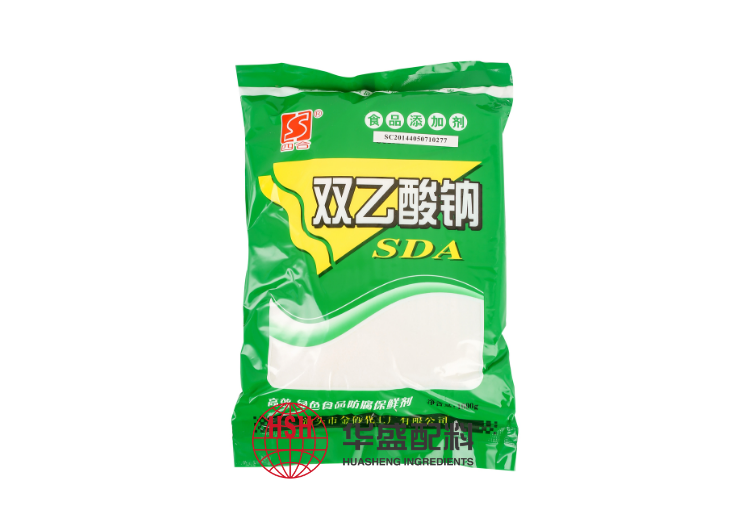“Tianzhu” Potassium Sorbate
2020-07-17
Potassium sorbate is white to light yellow flake crystal, crystal granule or crystalline powder, odorless or slightly smelly, long-term exposure to air is easy to absorb moisture, oxidation and discoloration.
“Tianzhu” Potassium Sorbate
Potassium sorbate is white to light yellow flake crystal, crystal granule or crystalline powder, odorless or slightly smelly, long-term exposure to air is easy to absorb moisture, oxidation and discoloration.
PRODUCT INTRODUCTION
1. Commercial name: Potassium sorbate
2. Name: - Hexadienoic (2, 4) - 2,4- acid potassium; potassium sorbate
3. Brand: Tianzhu
4. Specification: 1kg * 20 packets/box
5. CAS: 24634-61-5
6. Chemical: C6H7KO2
7. Molar mass: 150.22
8. Melting: 270 ℃
9. Nature:
Potassium sorbate is white to light yellow flake crystal, crystal granule or crystalline powder, odorless or slightly smelly, long-term exposure to air is easy to absorb moisture, oxidation and discoloration. Potassium sorbate solubles in water (67.6g/100ml (at 20 DEG C), 5% salt water, 47.5g/100ml (room temperature), 25% sucrose, 51g/100ml in room temperature). It's soluble in ethanol, propylene glycol (5.8g/100ml, 0.3g/100ml, 1% potassium sorbate solution PH7 ~ 8).
STORAGE CONDITIONS
Store in clean, cool, dry and sealed condition.
APPLICATION

Food Processing
Potassium sorbate is widely used as a food preservative. In 1982, China approved its use and promulgated the standard, which stipulated that the allowable concentration of flour products, pickles, canned food, dried fruits, dairy products and condiments was 0.02% ~ 0.1%. Adding 1% potassium sorbate to meat products can obviously inhibit the production of Clostridium botulinum toxin. FAO sets a series of standards for food, which clearly stipulates that the maximum dosage of potassium sorbate is 0.28/kg.

Animal Feed
Potassium sorbate can inhibit the growth of mold in feed, especially inhibit the formation of aflatoxin, so adding potassium sorbate can effectively avoid the spoilage of feed, and can still resist the growth of microorganisms in animal intestines. Feed is prone to spoilage during storage, transportation and sales, so the application market of potassium sorbate in feed industry is huge.
RESEARCH AND DEVELOPMENT SERVICES






